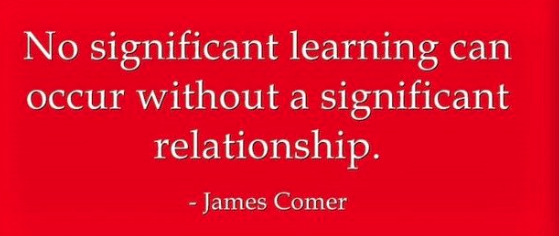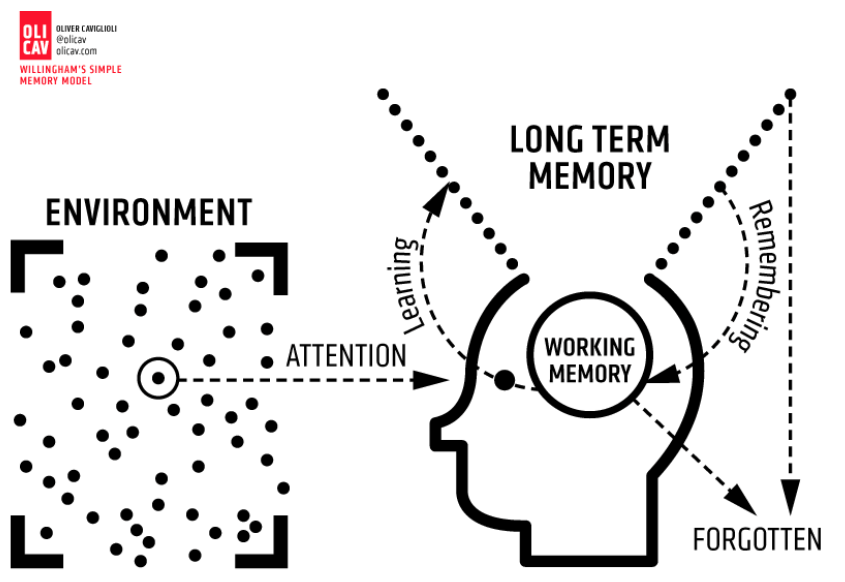
Blake Harvard invited “rebuttals” on his blog recently. This is a very cool idea and will start good conversations, and this blog post is my attempt to participate.
Blake wrote two posts about relationships and teaching/learning. In “But…We Do Learn from People We Don’t Like” he pointed out that we all have examples of learning from people we don’t like, and learning without “relationships”: learning from videos, texts, etc. In “Relationships and Learning: Clarification on a Popular Quote,” Blake researched the popular quote from James Comer in the image above. Blake figured out that Comer used the word “relationships” to refer to “meaningful relationships with material and experiences ” not just teacher-student relationships.
This blog post isn’t really a “rebuttal” of either of Blake’s blog posts, but I want to add to the conversation. I have a personal connection (relationship?) with this topic: my friend Pete and I have been giving a presentation called “Relationships Matter” for a few years. Pete does a great job talking about how positive student-teacher relationships are important for the scholars (Pete’s great word for students) he works with every day. I talk about how classroom assessments impact relationships, and how relationships impact classroom assessment, and how implicit bias complicates all that.
Pete and I use the James Comer quote above. Sometimes we even use this exact image. I appreciate Blake’s research into Dr. Comer’s original intention behind the quote, and I agree with Blake that we can learn from people we don’t like. BUT… relationships are amazingly important in teaching and learning, and I don’t think these clarifications should overshadow that basic truth.
One example: cognitive load theory is one of the most powerful models we have to figure out/predict what we will learn in any teaching/learning situation:

Without going into too much detail about the model (see this blog post for more information) , think about what a powerful student/teacher relationship can influence in the process illustrated above. A positive relationship might increase the chances that:
- Attention – students selectively attending to what the teacher is saying/doing
- Learning/Encoding – students connecting information/skills in their working memory to something in their long term memory (because the relationship may help teachers and students identify connections between the new information and previously learned information)
- Remembering – a strong relationship can help students be more willing to engage in retrieval practice (especially when the retrieval practice is challenging)
There’s a lot more to say about how teacher-student relationships can influence motivational factors. Some of the relevant motivation findings are summarized in the APA’s Top 20 document. Cognitive psychology research has a lot to teach us about learning, but so does motivation theory, etc. So I think I agree with Blake, but disagree slightly in an important way: Dr. Comer may have meant something different when he originated this quote, and it’s true that we can learn from people we don’t like. BUT relationships absolutely matter! They influence student attention, encoding, remembering, motivations, emotions, self-efficacy, and dozens of other factors that influence what students learn.
(for the record: I strongly suspect that Blake knows all this already. I bet he’s a great teacher who develops strong, positive relationships with his students)